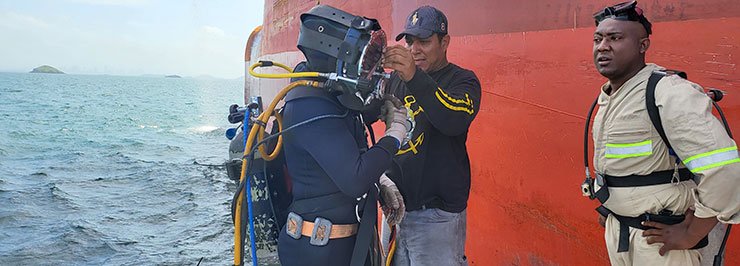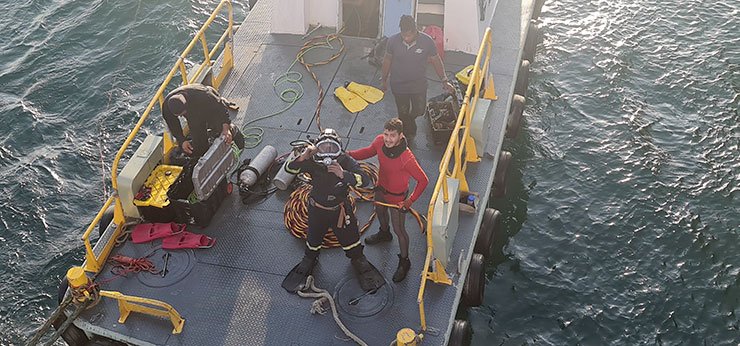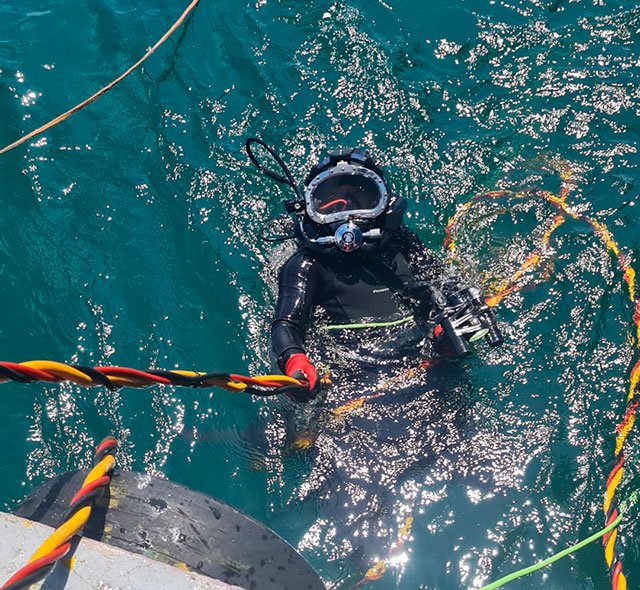Underwater Inspections on ships: ensuring their safety and efficiency
Underwater inspections play a critical role in the maintenance and safety of ships. These vessels operate in challenging marine environments and are exposed to a number of factors that can affect their structural integrity and efficiency. In this article, we will explore the importance of subsea inspections for ships and how they contribute to ensuring their safety and optimal performance.
Challenges in ship and cargo ship maintenance
Hostile marine environments
Ships sail in seas and oceans, facing corrosion caused by salt water and marine elements that can affect the integrity of their hulls and equipment.
Impact of marine growth
The growth of marine organisms on the hull of ships, known as biofouling, can increase drag and fuel consumption, affecting operational efficiency.
Impact and collision risks
Contact with submerged objects, rocks, or accidents in the water can cause externally undetected damage to the ship’s structure and require inspections for proper assessment.
The importance of underwater inspections

Early detection of damage
Underwater inspections allow early detection of any damage, corrosion, or deformation to the hull and other crucial components of the ship, preventing problems from escalating and generating costly repairs.
Structural integrity assessment
Underwater inspections provide a detailed view of the integrity of the ship’s structure, ensuring that there are no cracks, deep corrosion, or deformations that could compromise safety and seaworthiness.
Optimizing operational efficiency
By detecting and periodically cleaning biofouling and other elements adhering to the hull, the ship’s efficiency is improved by reducing drag and fuel consumption.
Types of underwater inspections on ships

Visual inspections
Visual inspections by professional divers allow a close evaluation of the hull and other components to identify visible damage and potential problems.
Use of high-tech equipment
Technologies such as Remotely Operated Vehicles (ROVs) equipped with advanced cameras and sensors provide detailed images of the hull and submerged structures without the need for divers to enter the water.
Inspections with sonar technology
The use of underwater sonar allows submerged objects to be detected and mapped, providing essential information on the presence of potential obstacles near the ship’s path.
Benefits and best practices in underwater surveys

Safety and regulatory compliance
Periodic subsea surveys ensure the safety of crew and cargo as well as compliance with maritime regulations and standards.
Preventive maintenance
Regular inspections are part of a preventive maintenance approach that identifies and addresses problems at an early stage, avoiding major damage and costly downtime.
Operational efficiency and cost savings

Regular hull cleaning to remove biofouling and other adhering elements improves ship efficiency, reduces fuel consumption, and generates significant long-term savings.
In conclusion, underwater inspections on ships are an essential practice to ensure their safety, optimum performance, and operational efficiency. With a focus on preventive maintenance and early detection of damage, these inspections allow problems to be addressed before they become costly repairs.
AQUADIVER, committed to providing high-quality and reliable subsea inspection services. Our team of professional divers and underwater technology experts is ready to conduct thorough inspections and offer effective solutions to keep your vessels in the best possible condition.
If you need underwater inspection services for your vessels, do not hesitate to contact us. We are here to offer you personalized assistance and solutions tailored to your specific needs. Trust AQUADIVER to ensure the safety and efficiency of your marine assets; contact us today!
